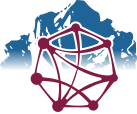
[Externally funded event, on invitation only]
Theme: We are interested in how philosophical concepts of purpose can be applied to, or enriched by, simplified mathematical models of a living system's organization. Among possible questions, we want to focus on the following:
1. Defining purposiveness
- what makes purpose different from other concepts such as optimization
- whether this concept is rightly applicable to any given system, how to characterize purposiveness (e.g. by organizational closure)
- whether purposiveness at one scale inevitably implies purposiveness at other scales (i.e. in subsets or supersets of the system)
2. Multiplicity of purposes
- how to assign different purposes to different parts of a system, what formalism can express their distinct roles within its organization
- whether purposiveness favors the existence and open-ended evolution of a multiplicity of forms and purposes
Here, we propose to work as a group to explore simple mathematical models that may shed light on the intersection of these two main questions.
Approach: The event is an experiment in collective creativity: the goal is to make some amount of progress as a multidisciplinary group in a short time, on a topic at the interface between philosophy and mathematical modeling.
We believe the main obstacles to this endeavor are not just scientific but also human: researchers lack training in how to work as a group, especially across fields of expertise, and usual formats (such as conferences or unstructured discussions) are not the most conducive to doing it well.
Thus, the event will combine
* a topical workshop aiming at producing a novel piece of research, coming after:
* a meta-workshop devoted to figuring out how to effectively organize this (and any other) workshop and do research together, based on ideas and methods from other fields of collective work.
This meta-workshop will be the very first of a hopefully long series of such experiments at INTP, drawing inspiration from how group creativity is enabled in the arts, popular education, decision making, etc. and identifying which of these ideas are most useful to scientific and scholarly research.
Schedule: Concretely, we will split the event into two main parts, and we request that participants let us know in advance how involved they would like to be in each of the two (you can join one or both).
June 6 to 9: a 4-day program led by an external instructor having worked as both a researcher and a facilitator, providing tools to facilitate work as a group. This training intends to give us very broadly applicable guidance, relevant for this workshop, but also for all our future efforts at leading or participating in collective research.
June 10 to 14: a set of work sessions in smaller groups on the problem at hand, with the aim of having a research output by the end of the workshop (at least some results and notes that can be shared with a broader audience).